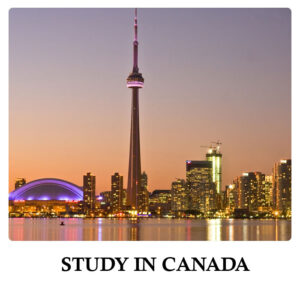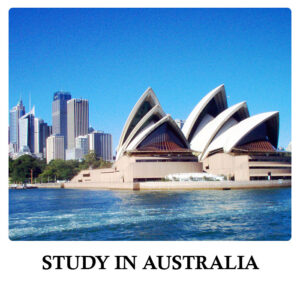STUDY IN UK
The UK is a world leader in many areas of education including engineering, science, art and design, business and management, law and finance. The UK’s reputation and legacy as a world center for scientific research makes it a magnet for some of the very best thinkers in the world. With only one percent of the world’s population, the UK is responsible for eight percent of global scientific publications.
- Capital: London
- Population: 60,094,648
- Area: 244,110 sq km
- Language: English
- Religion: Anglican, Roman Catholic, Muslim, Sikh, Hindu, Jewish
- Continent: Europe

WHY STUDY IN UK?
UK qualifications are recognized by employers and organizations worldwide. The UK education system has a reputation for quality standards at all levels with many institutions considered to be among the best in the world for teaching and research. UK courses encourage independence, creativity and self-reliance: the kinds of qualities that employers around the world are looking for. Degree courses last three years (not four as in many other countries), and master’s degree courses can take one year (not two), dramatically reducing your costs. A safe environment, established support services for international students and likely access to free healthcare. Thousands of scholarship opportunities. A fun and friendly student culture. Opportunities for part-time and vacation work in the UK as well as organized work placements at leading businesses as part of courses. Studying in UK is a base for exploring historic parts of the UK and mainland Europe and a experience of living as part of a multicultural society.
ADMISSION IN UK:
Entry Requirements:-
Under Graduate: Enquiries concerning admission to a graduate course should be sent by the students to the institutions at least twelve months before the proposed start date. Most institutions do not have a formal closing date for receipt of applications; however, admission to a taught course may have to be submitted by a specific date which varies from course to course. It is also advisable to apply as early as possible given the closing dates and possible level of competition for scholarships given by foundations, trusts and the universities themselves.
Post Graduate: For Admission to Master’s Degree a UK Bachelor’s degree in an appropriate subject, awarded with first or second-class Honors, or an overseas qualification of an equivalent standard from a university or educational institution of university rank is required. Where the US/Canadian marking scheme is used, a minimum grade point average (GPA) of 3.0 is required.
Language Tests: You may have to take one of the following tests: International English Language Testing Service (IELTS) with score 6 or above depending on the course and institution; grade C in Cambridge Proficiency of English or Cambridge Advanced English; Test of English as a Foreign Language (TOEFL) with score 550 or above; NEAB University Entrance Test in English for speakers of other languages at Grade 3.
If international students plan to study in England’s top universities, they will need to take the IELTS Test. However, TOEFL test can also considered as part of their admission requirements in many universities but keep in mind it is not accepted by many British universities yet. From Cambridge and Oxford Universities, to Kings College, the Imperial College of London and Regent’s College, the IELTS or TOEFL test is part of the admissions process to determine whether non-English speaking students have the language skills to succeed.
Approximate Fees (Average of Many Universities)
- MBA: $11000
- Arts: $11000
- Engineering: $10000-$16000
Medical Care: If your course lasts for more than six months, you will be entitled to free medical care under the UK’s National Health Service. Even if your course lasts for less than six months, your country might have a reciprocal agreement with the UK which will mean that you also are entitled to free medical care. If your country does not have a reciprocal agreement however, and your course lasts less than six months you should set aside sufficient funds to pay for medical insurance.
Until recently, if you wanted to take a job whilst studying in the UK you first had to obtain permission to do so. This situation changed this year. You are now allowed to work up to twenty hours per week during term time and an unlimited number of hours during vacation time. Similarly you are able to do work placements which are part of a ‘sandwich degree’ or undertake internship placements with multinational employers.
STUDENT VISA PROCESS:
Immigration and student visa Information for UK
For EEA Students: If you are a student from EEA country that is – European Union plus Iceland, Liechtenstein and Norway, then you can enter United Kingdom with minimum formalities. If you are from EEA then it is so easy for you to enter UK that you don’t even need to obtain UK Student visa. However, you’ll be asked to present evidences that you have been approved for the course of study you have selected and you have sufficient funds to stay and study in United Kingdom. In addition to this, you’ll also need a valid passport.
For Non EEA Students: If you are a student from EEA country that is – European Union plus Iceland, Liechtenstein and Norway, then you can enter United Kingdom with minimum formalities. If you are from EEA then it is so easy for you to enter UK that you don’t even need to obtain UK Student visa. However, you’ll be asked to present evidences that you have been approved for the course of study you have selected and you have sufficient funds to stay and study in United Kingdom. In addition to this, you’ll also need a valid passport.
Documents Required to Obtain British Student Visa
- A valid passport
- A letter of unconditional acceptance for a full-time course from a university
- Mark sheets of previously joined exams
- Evidence of your financial ability to meet, without working in the UK, the costs of your course, accommodation and maintenance and to support any dependants accompanying you.
- Letters of recommendations are appreciated
Time of validity of the student visa to be received is usually determined by the length of your course of study.
When you arrive in the United Kingdom, an immigration officer may question you, so don’t forget to take all relevant documents in your hand luggage.
Student Visa Doesn’t Allow
- working more than 20 hrs per week.
- your placement is part of your studies, has the agreement of your education institution and leads to a degree or qualification awarded by a nationally recognized examining body
- do business, be self-employed or provide services as a professional sportsperson or entertainer
- work full-time in a permanent job
Passport stickers, stamp and length of stay
When you apply for a student visa at a British Embassy, Consulate or High Commission outside the UK, you will receive a sticker known as vignette, in your passport with the conditions and length of stay. When you arrive at the airport, you will receive a stamp to show when you entered the United Kingdom. If you are applying for entry at a port of entry (you can only do this if you are from a non visa required nation), you will get a stamp in your passport with conditions and length of stay.
Most of the overseas students (from outside the European Union) are initially given the right to stay for one year. But there is nothing to worry about, if you want to stay longer as a student then you may extend your visa validity length as a student.
The Immigration Officer may endorse on your passport with any other restriction that may apply to you.
FINANCIAL AIDS:
Generally no scholarships are provided in UK. However if you are extraordinary then you may be eligible for some financial aid. In United Kingdom, fee is charged higher for non-EU students. It is because British Government doesn’t provide any financial support for providing education to non-EU students. Since Living cost and university or college fee is comparatively expensive, it is very important for you to be financially capable to carry on your studies in UK.
To support your costs while studying in UK, you are permitted to do 20 hours a week of part-time job. However it is not sure that you may get the job in UK, so be careful. If you are financially not capable before you enter UK and are thinking to spend the money you have earned doing part-time job in UK for your studies then you may have problem after you’ll be unable to get any type of job in United Kingdom. Most of the Asian students are getting such problem. But in the popular cities like London, students find job easily.

LIVING COST IN UK:
Private Accommodation
It is important to remember, if you are using the lists of private rented accommodation provided by Student Housing Services, that although they try to secure a range of good quality housing at reasonable prices, the properties have not been inspected. You should not assume that listed accommodation is “approved accommodation”. You should never accept accommodation without first seeing the property. When you find accommodation you may have to pay a deposit immediately of up to one month’s rent and also one month’s rent in advance (always ask for a receipt). You may also have to pay a deposit for gas, electricity and telephone services. You should therefore have available around £800 for initial expenses such as deposit, rent in advance and the cost of temporary accommodation.
Your landlord or landlady will usually expect the rent on a fixed day, weekly or monthly in advance. Make sure you have a rent book or a receipt for the rent. If your landlord or landlady does not provide a rent book, buy one yourself (available from stationery shops) and ask them to sign it when you pay rent. A rent book may also list certain house rules (or these may be displayed elsewhere in the house). Check you understand these and can keep to them as they may form part of your contract of tenancy and are usually aimed at keeping the household running smoothly.
In self-contained flats, your rent will usually be payable monthly and your landlord or landlady is unlikely to live on the premises. Any rules you are required to keep will be written in the lease or agreement you have signed which is legally binding. The lease will usually be for specific periods and once you sign you are committed to renting the flat for that length of time. So study the lease carefully before signing, and if necessary take legal advice.
Money Matters:Before coming to the UK you should organize your money to ensure you have enough at the start of your course and for the duration of your course. You will also need to investigate the best ways to bring money into the UK. Most students will have to buy bedding, clothes and basic essentials a the beginning of their stay. London is in general, milder than other parts of the UK. The summer tends to be warm; winter is usually cold and damp; spring and autumn are somewhere in between. £300 should be enough for additional clothing needs.
Entertainment Costs:London hosts a wide range of entertainment venues catering to all groups of people. Dinner out can cost from £15 upwards. Cinemas in Central London cost around £10. Clubs cost from £8-£15. There are special discounts available to students so make sure you ask.
Travel Costs:The cost of traveling in London is dependent on where you are traveling to and how often you need to travel. Weekly underground passes cost between £18.00 (or travel in central zones one and two) and £35 if you are traveling between central and outer London. Bus passes are much cheaper. Excellent discounts exist for full-time students.
London is very well served by British Rail. Reductions are available on British Rail if you buy a Young Person’s Rail card, which is available to anyone under 25 years. If you are over 25 you are entitled to a Student Rail card if you are engaged in 15 or more hours of education a week. Both cards obtain a one third reduction in price on train tickets. These cards can be purchased from BR train stations. British Rail has a number of special offers. Tickets may be cheaper if you book them in advance. These are known as Apex fares. It is important to note that when traveling at peak hours, that is, before 9am and on certain trains from about 5pm to 7pm, tickets will be considerably more expensive. Traveling on a Friday and on certain other days throughout the year is also more expensive.





